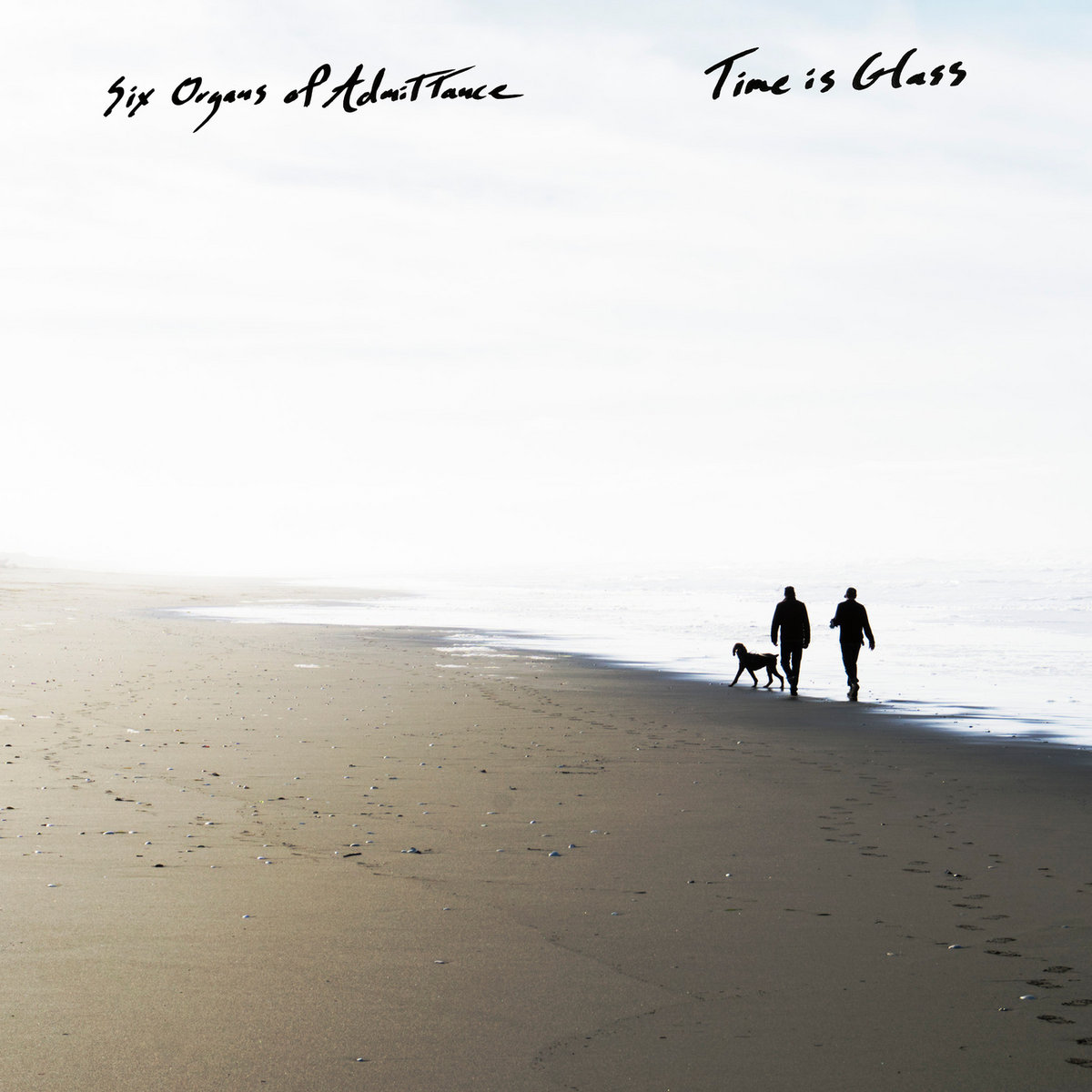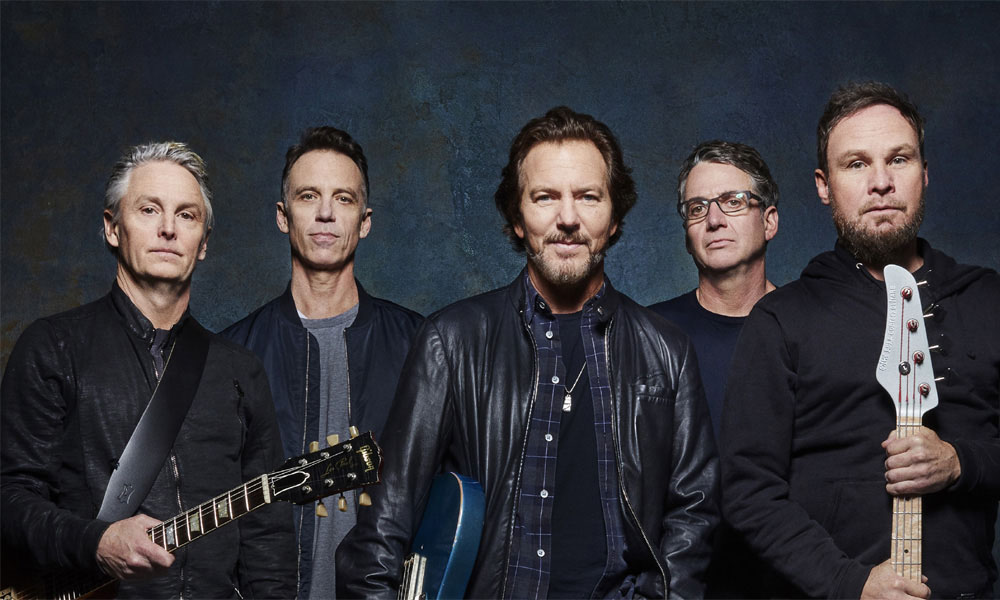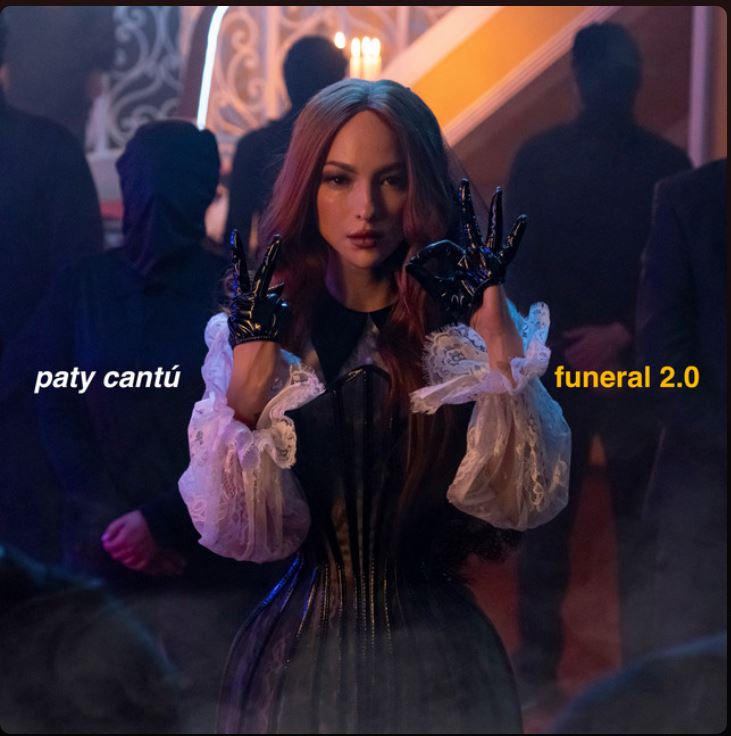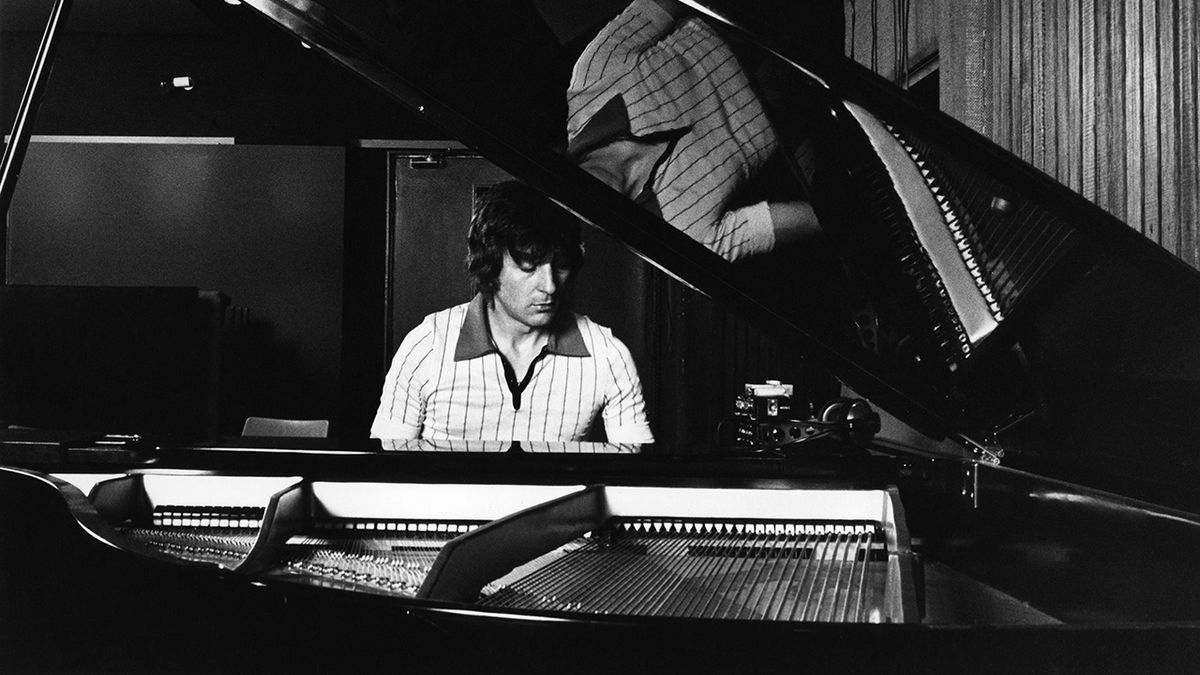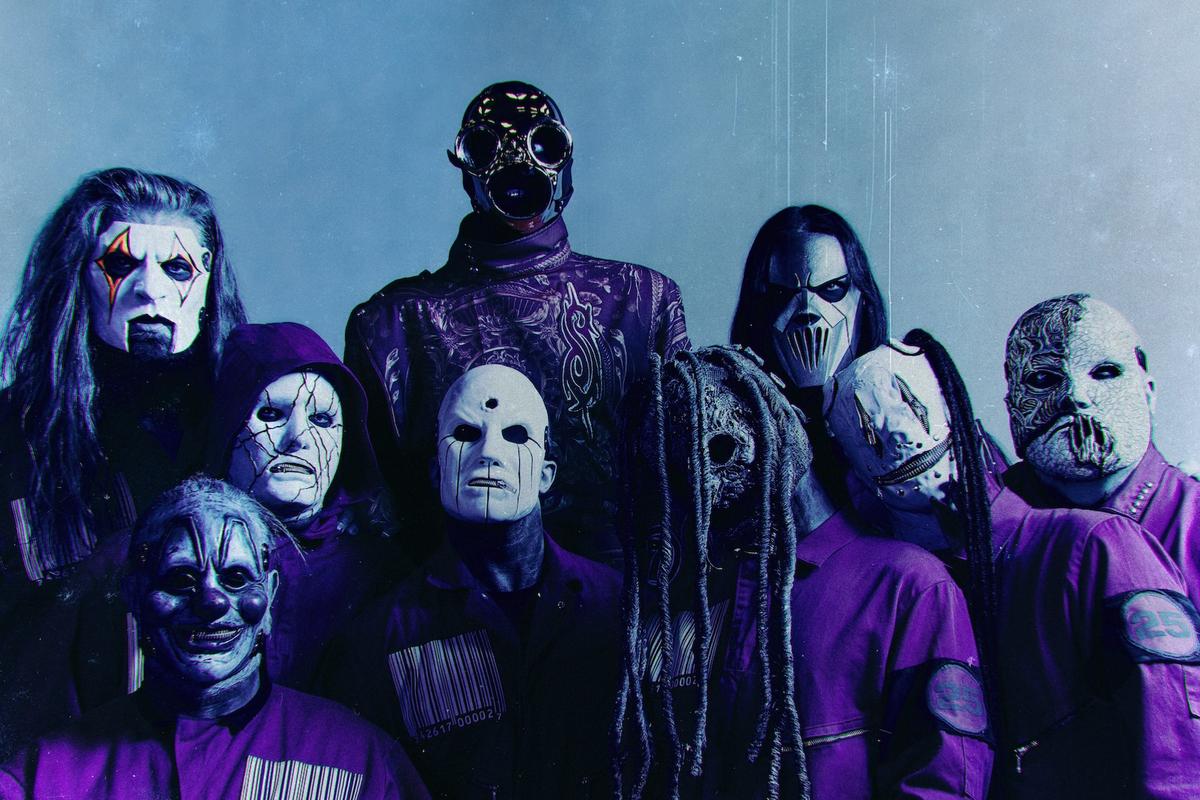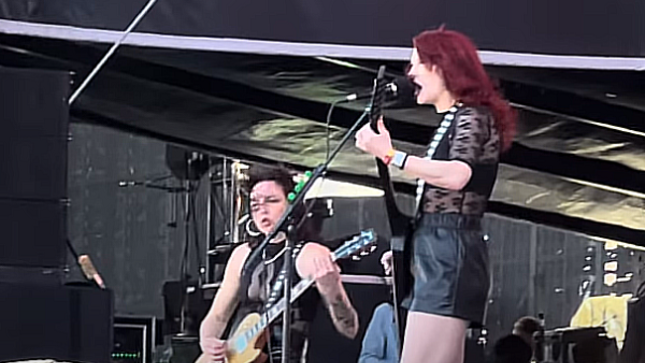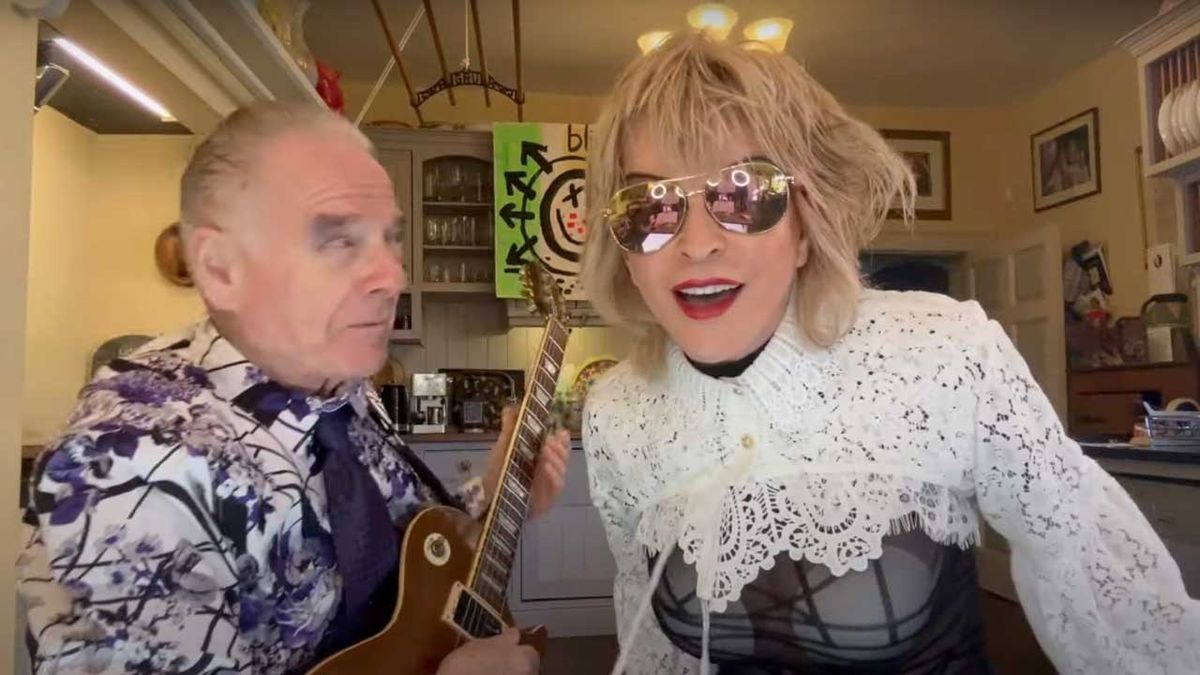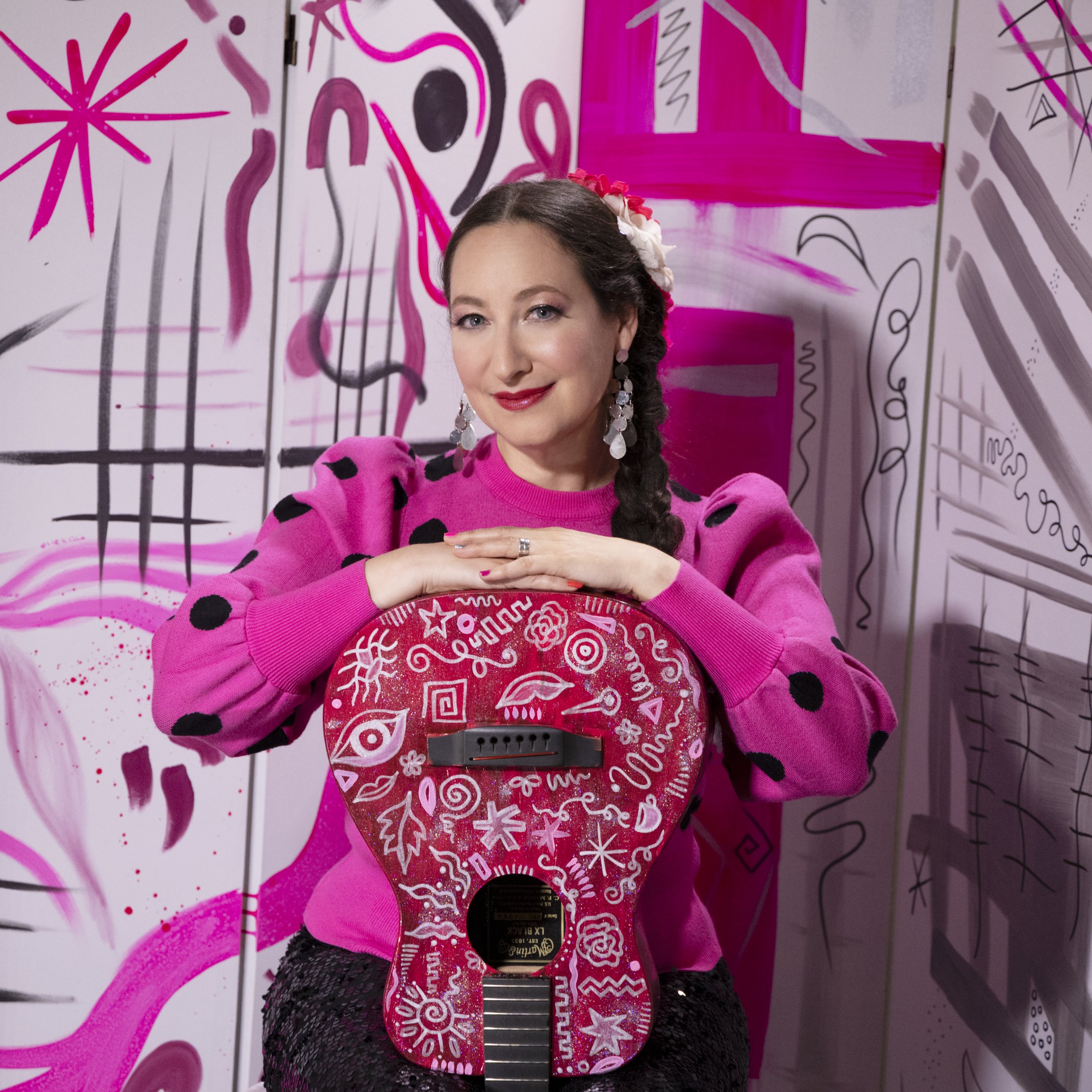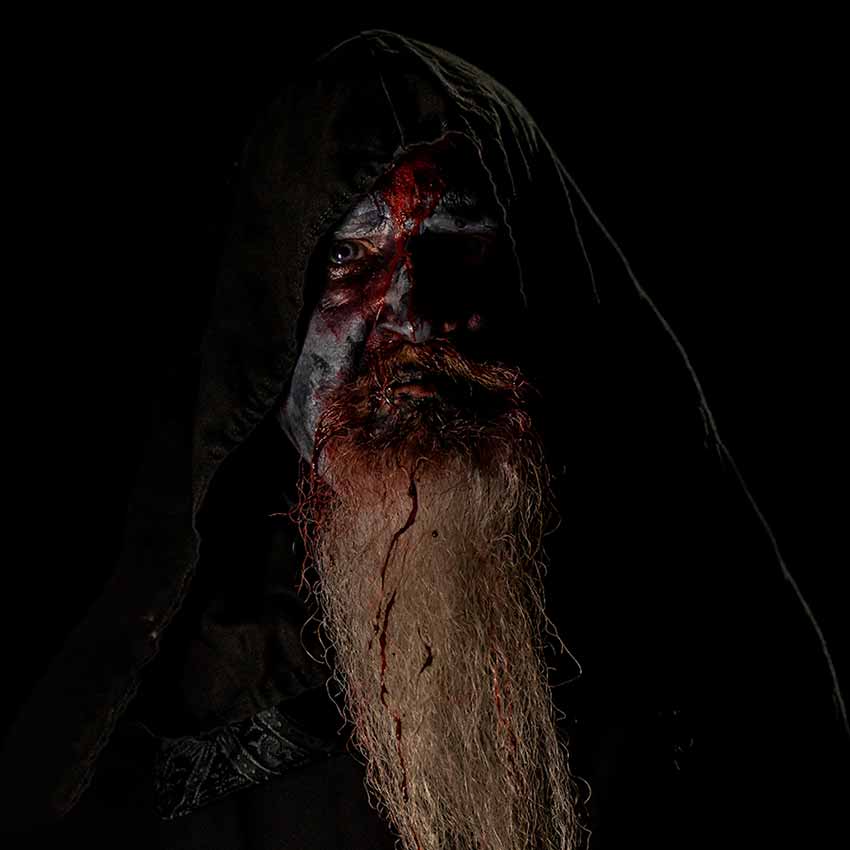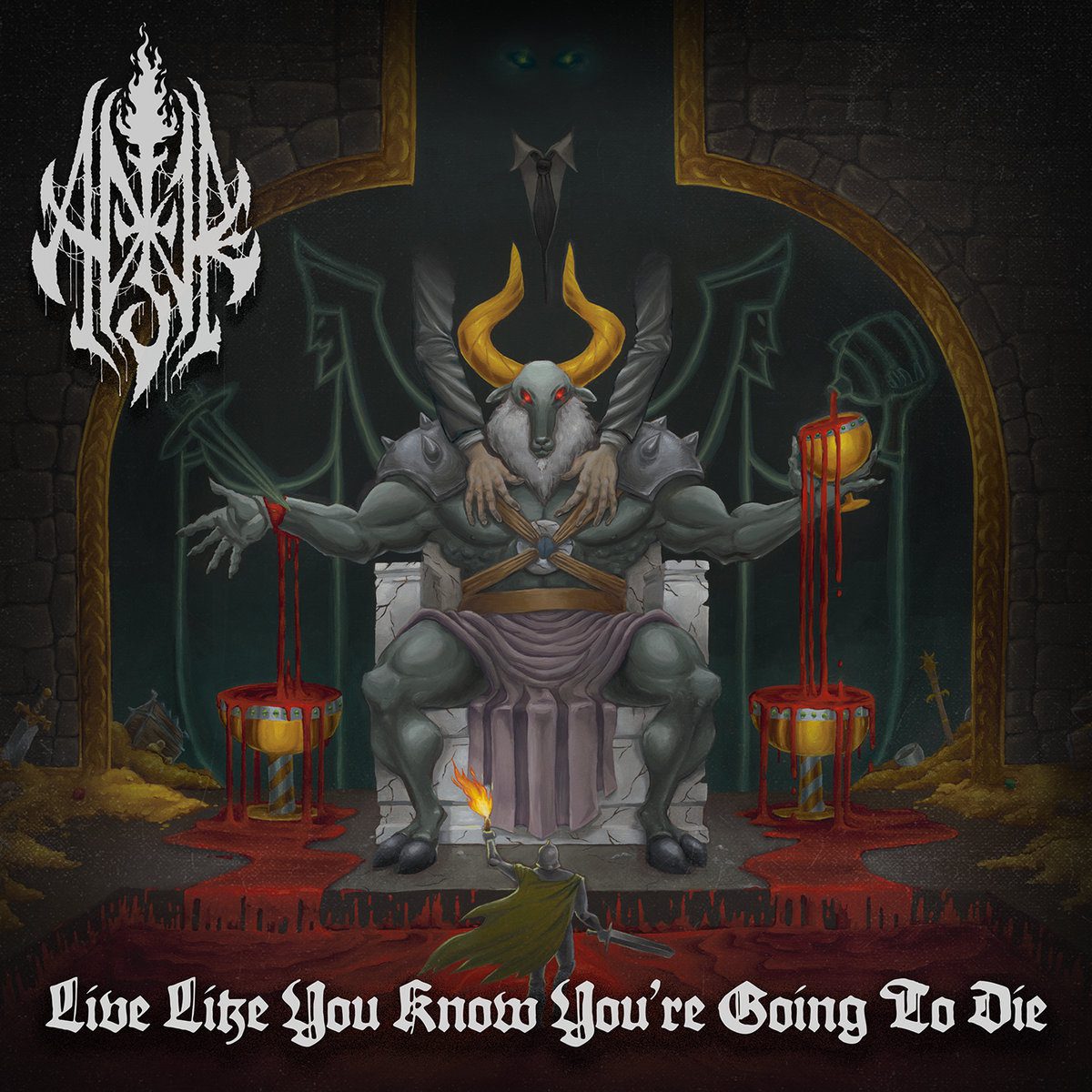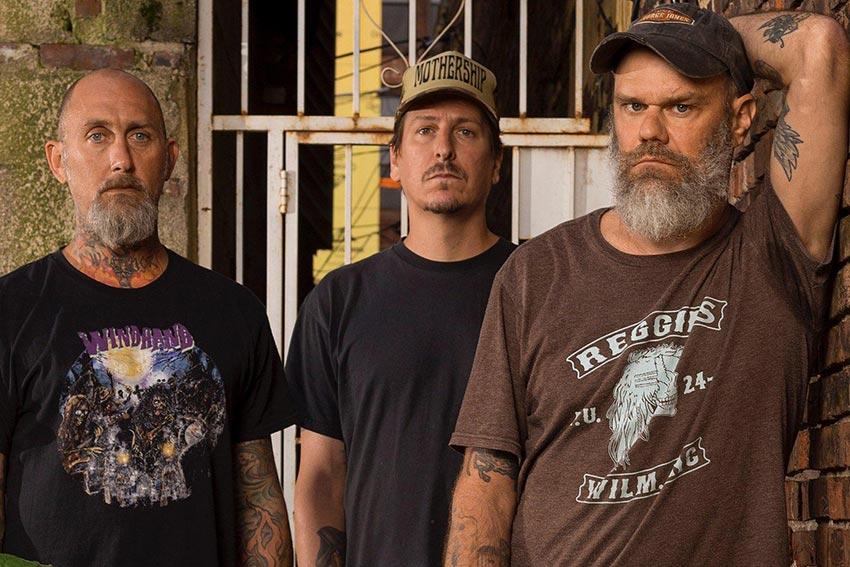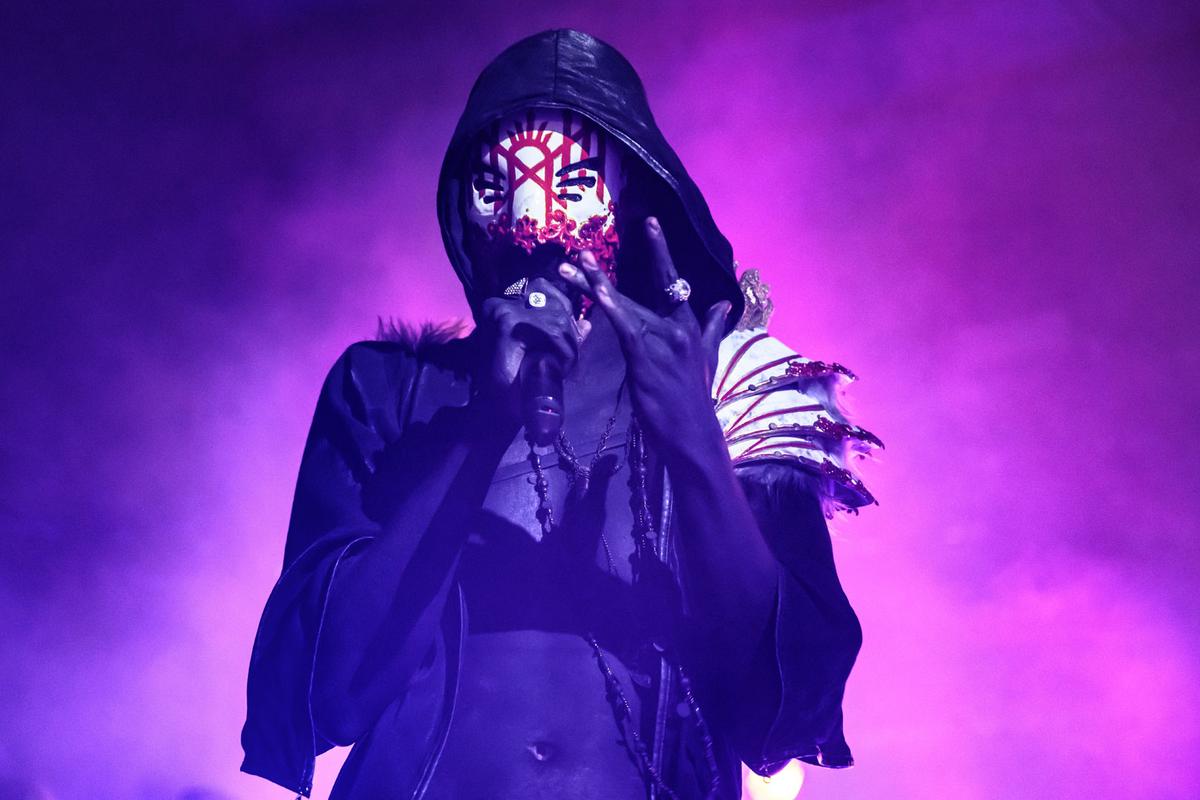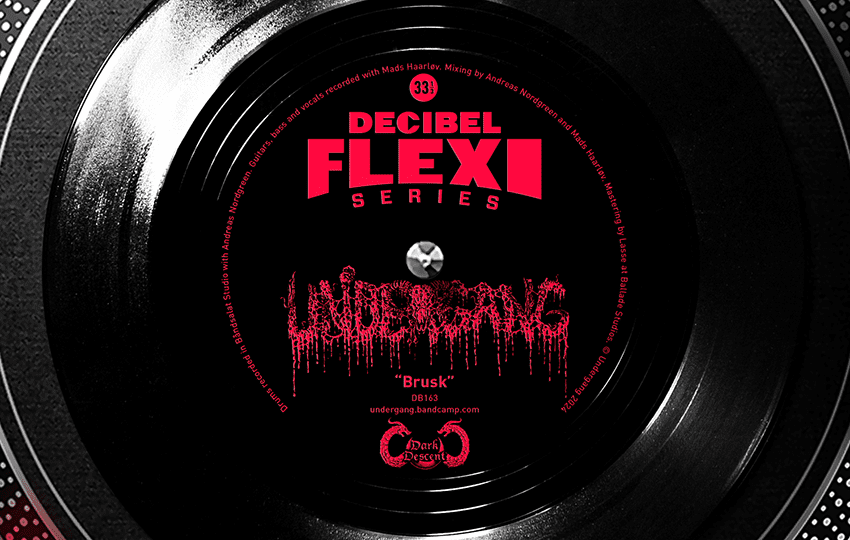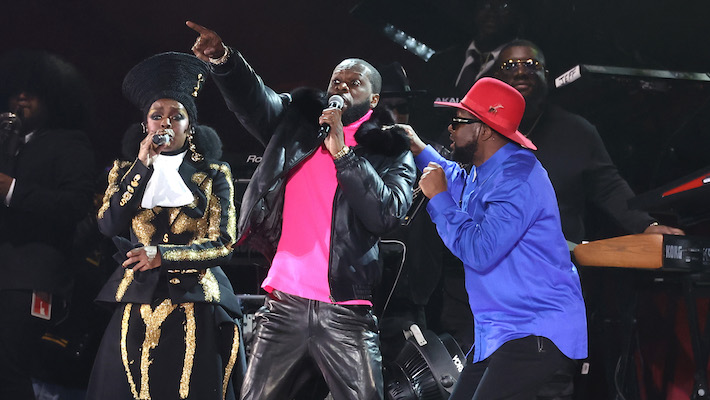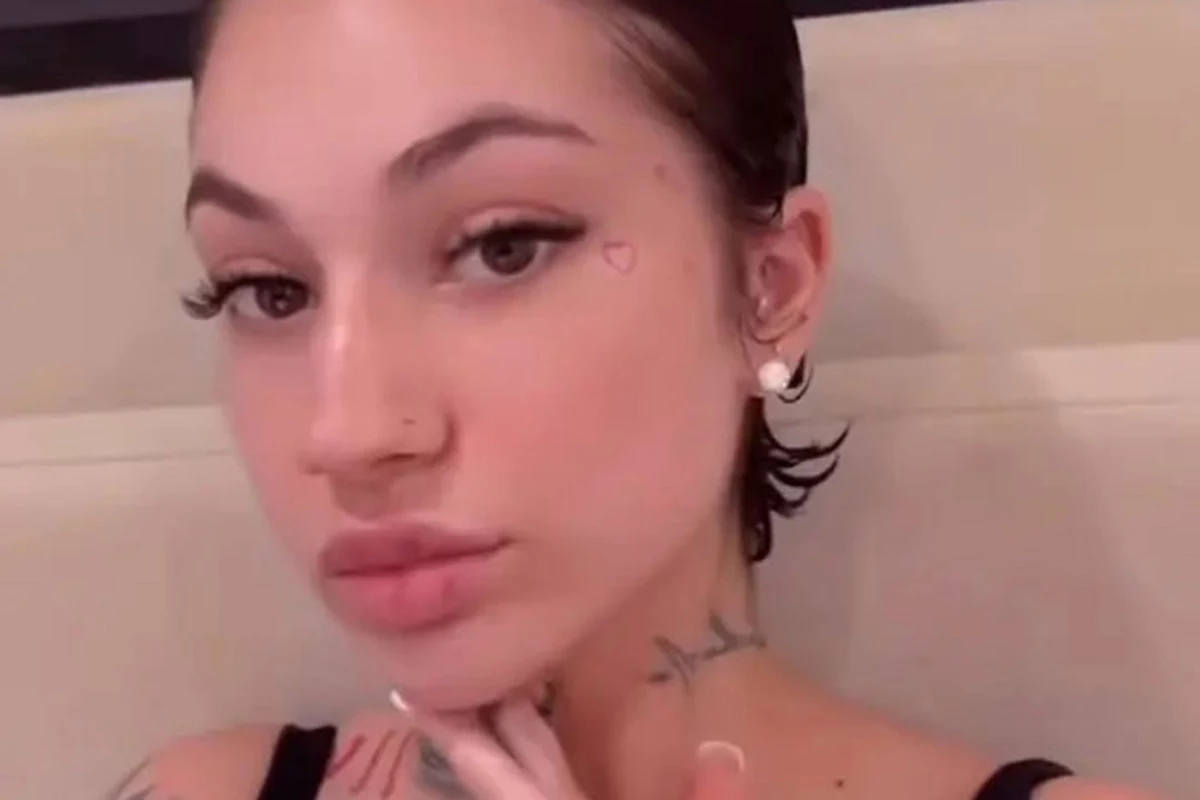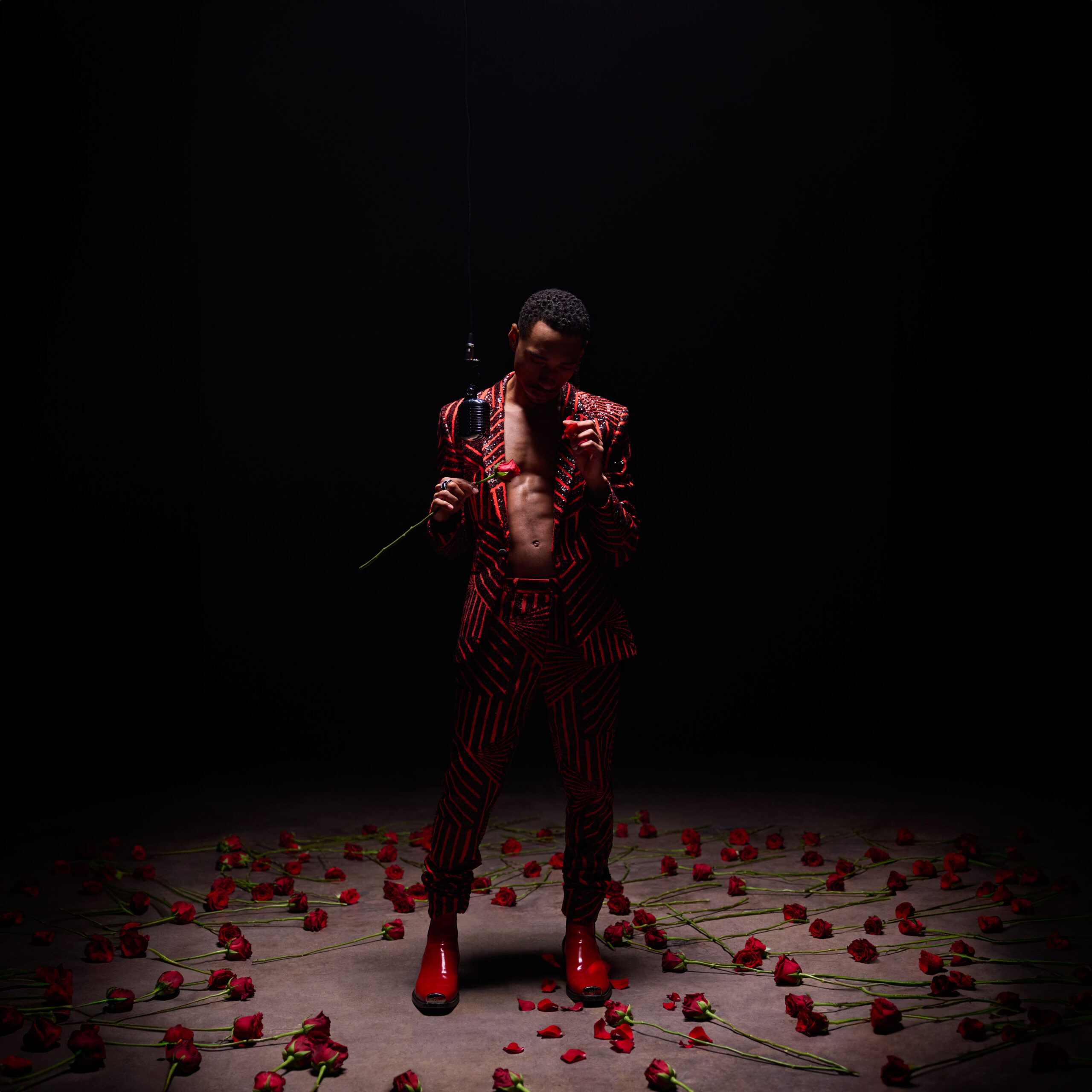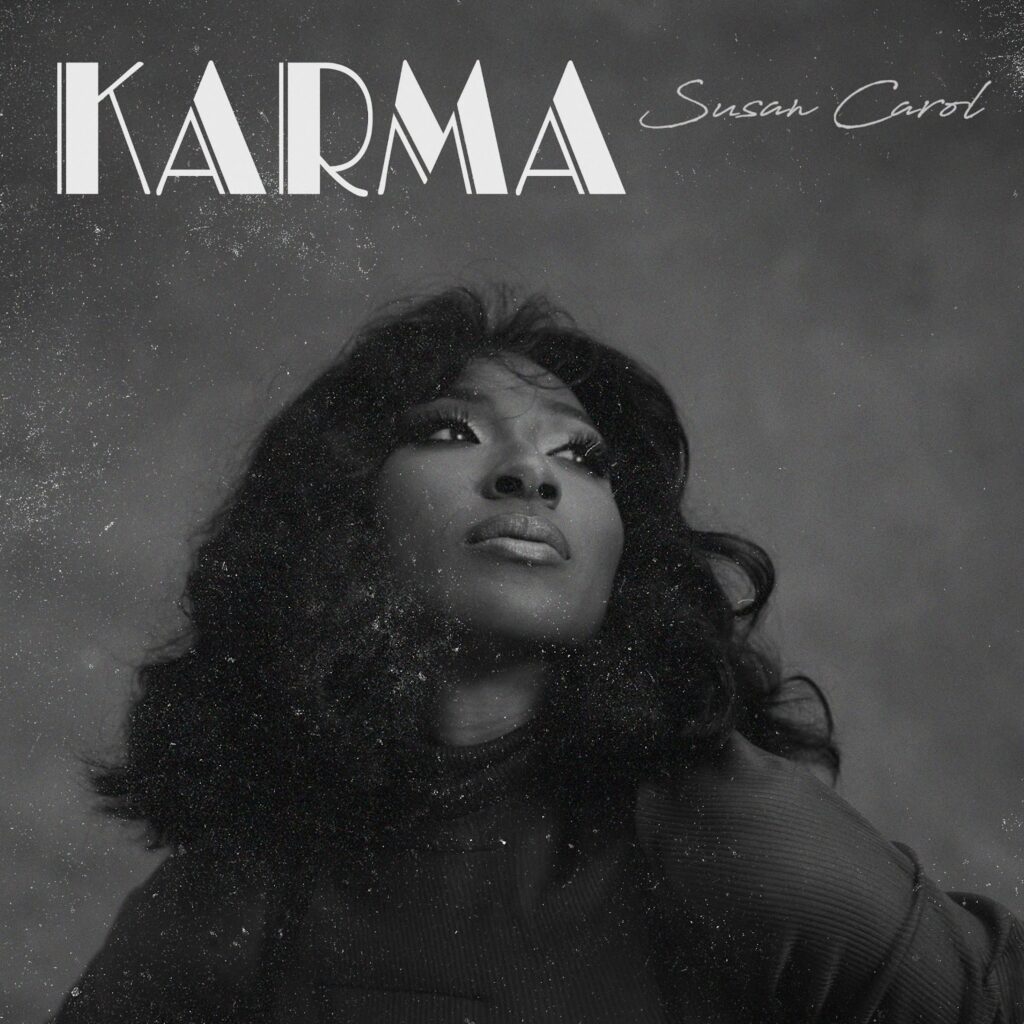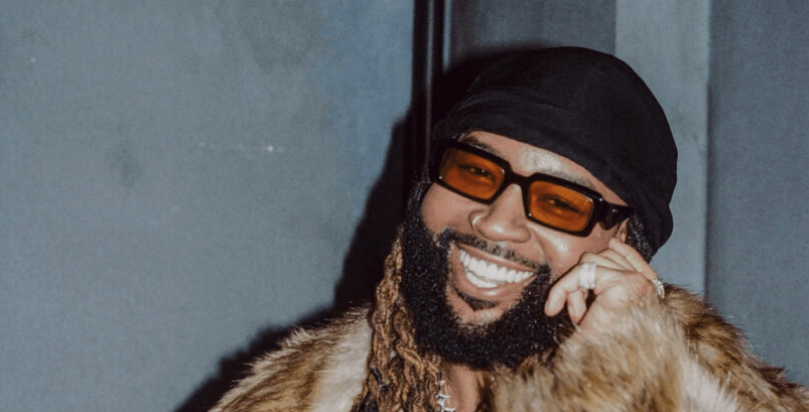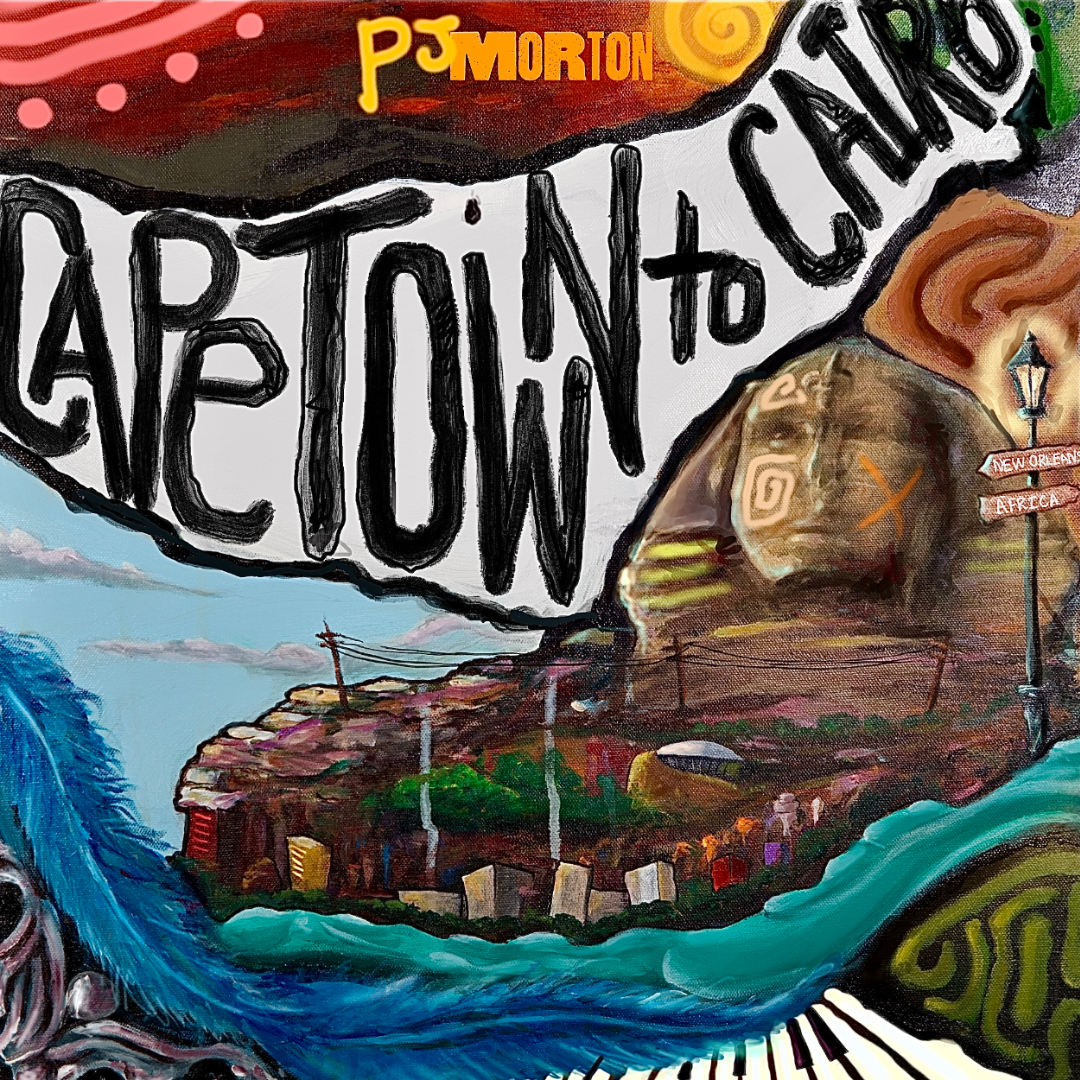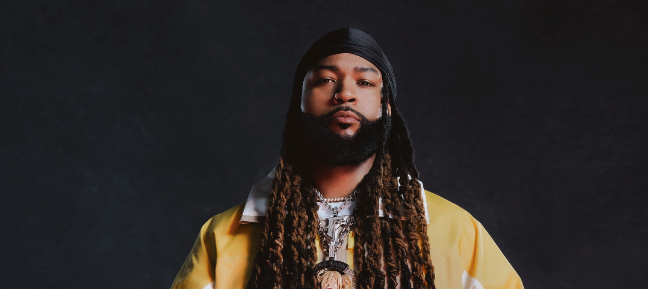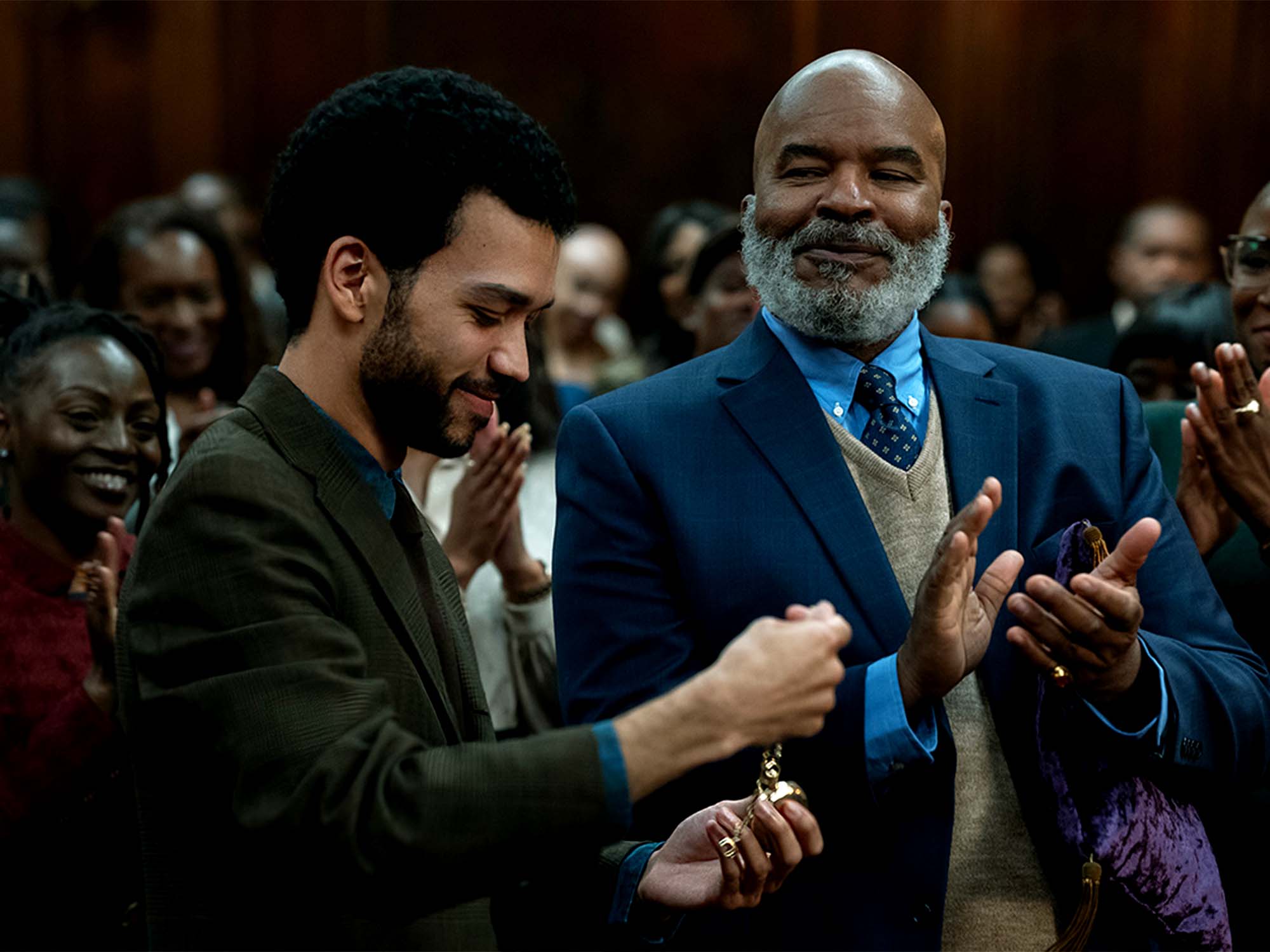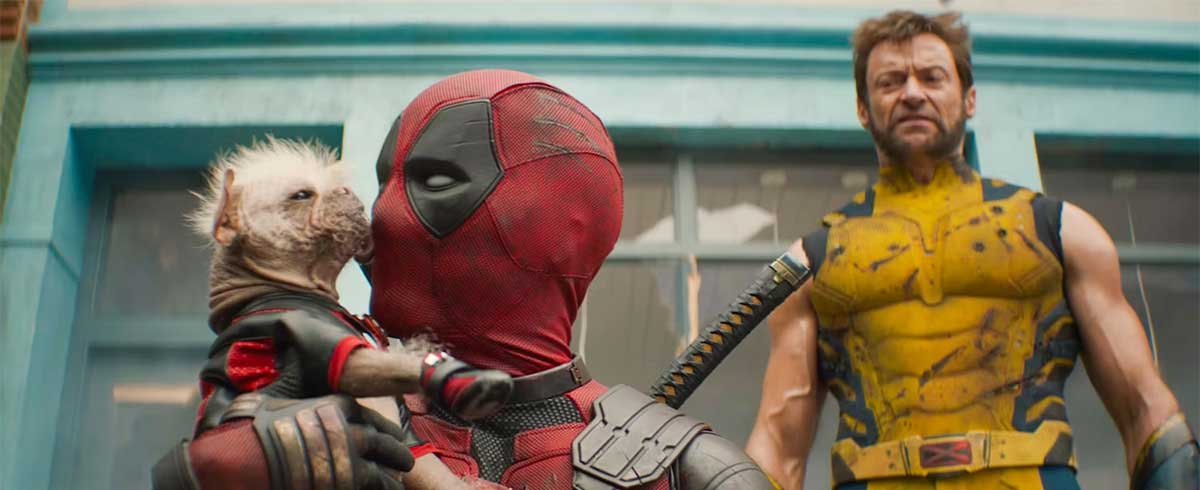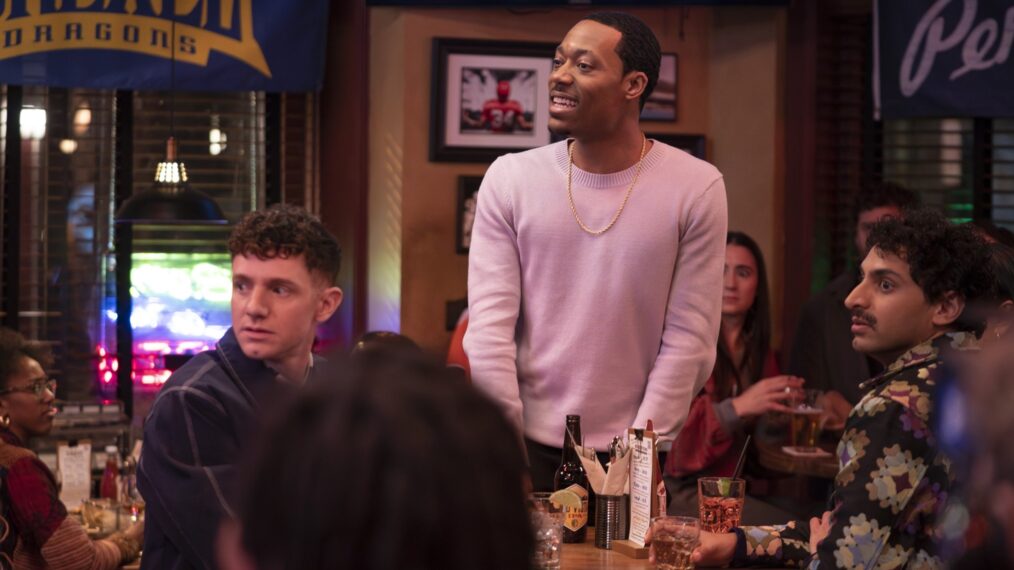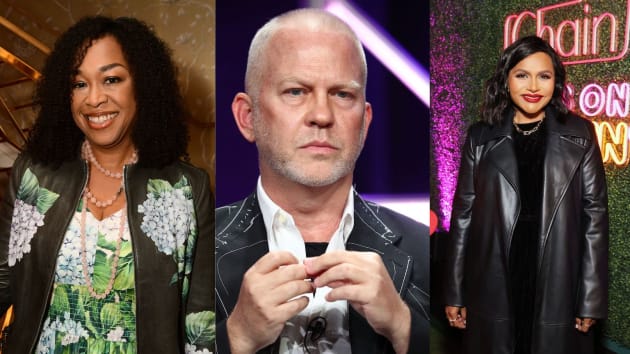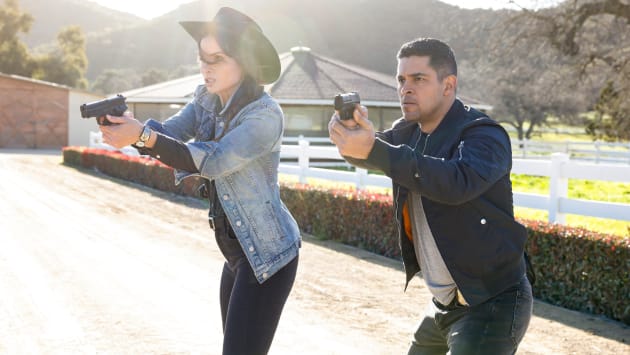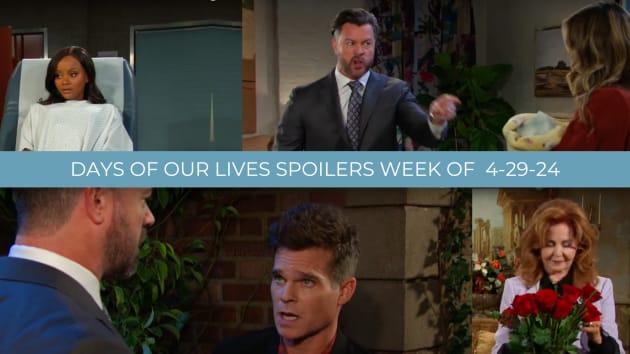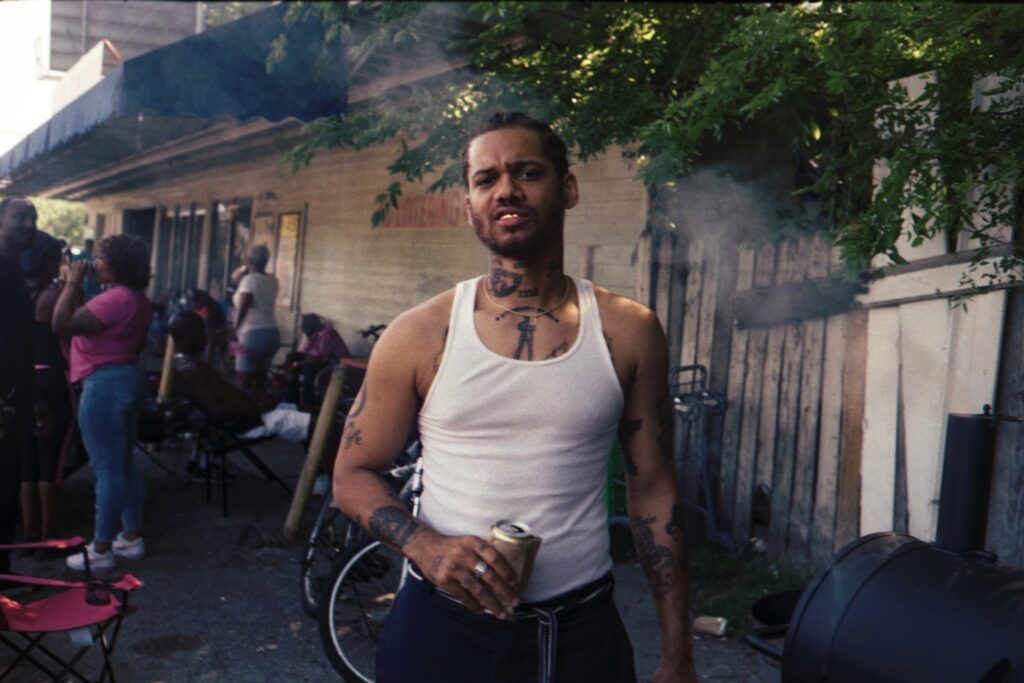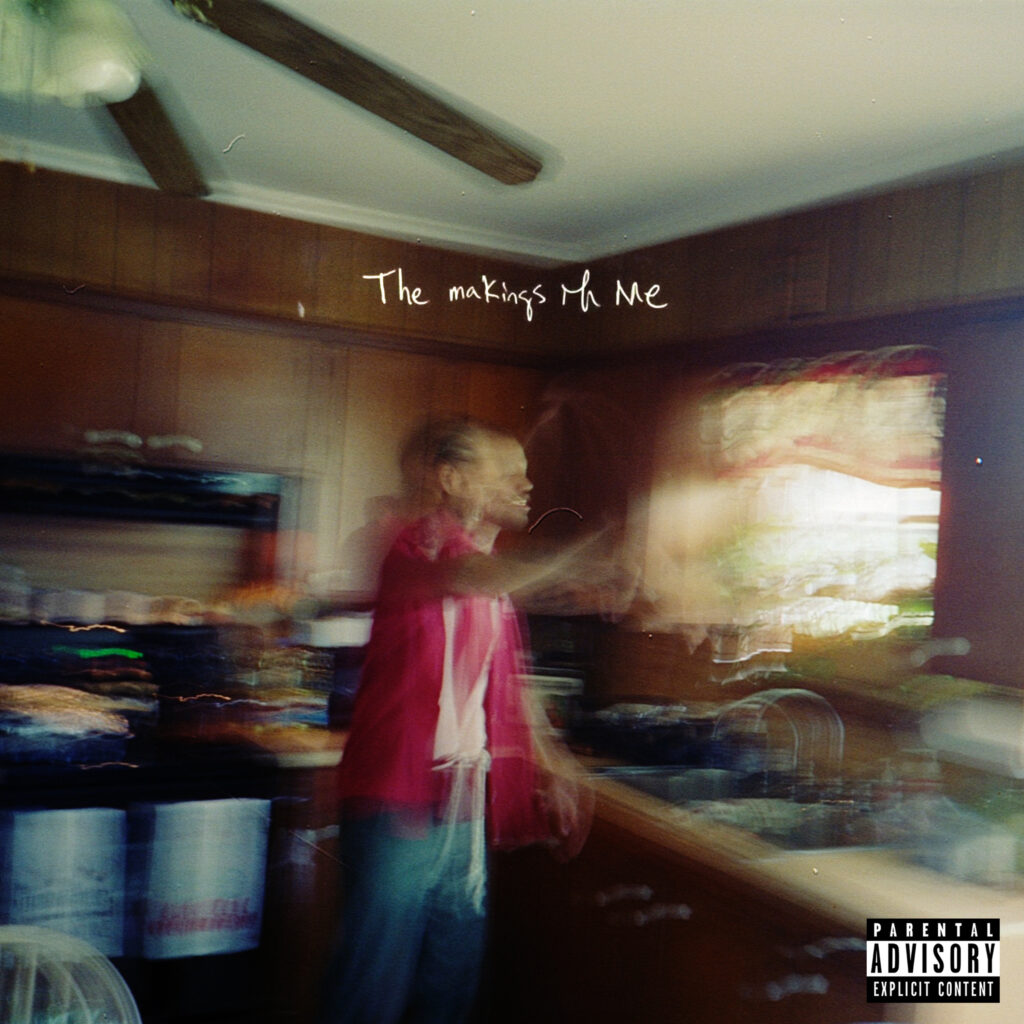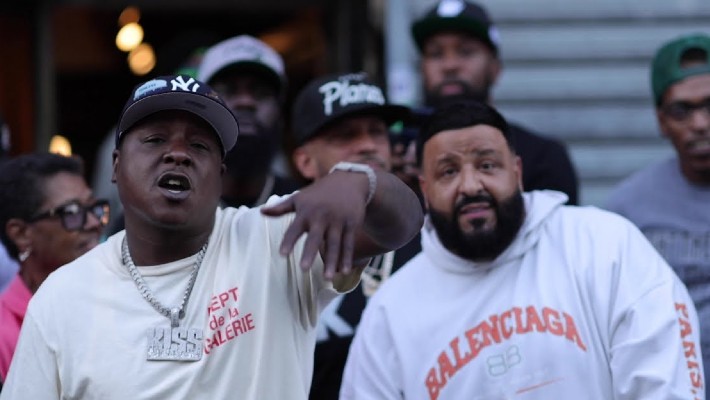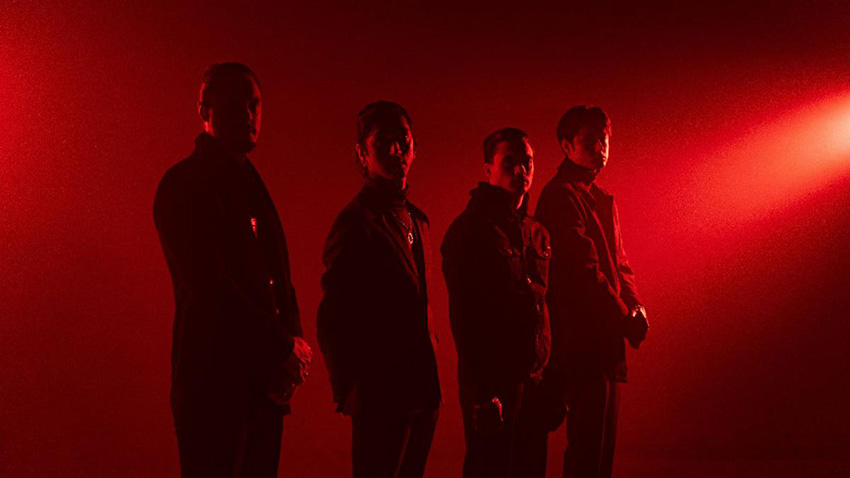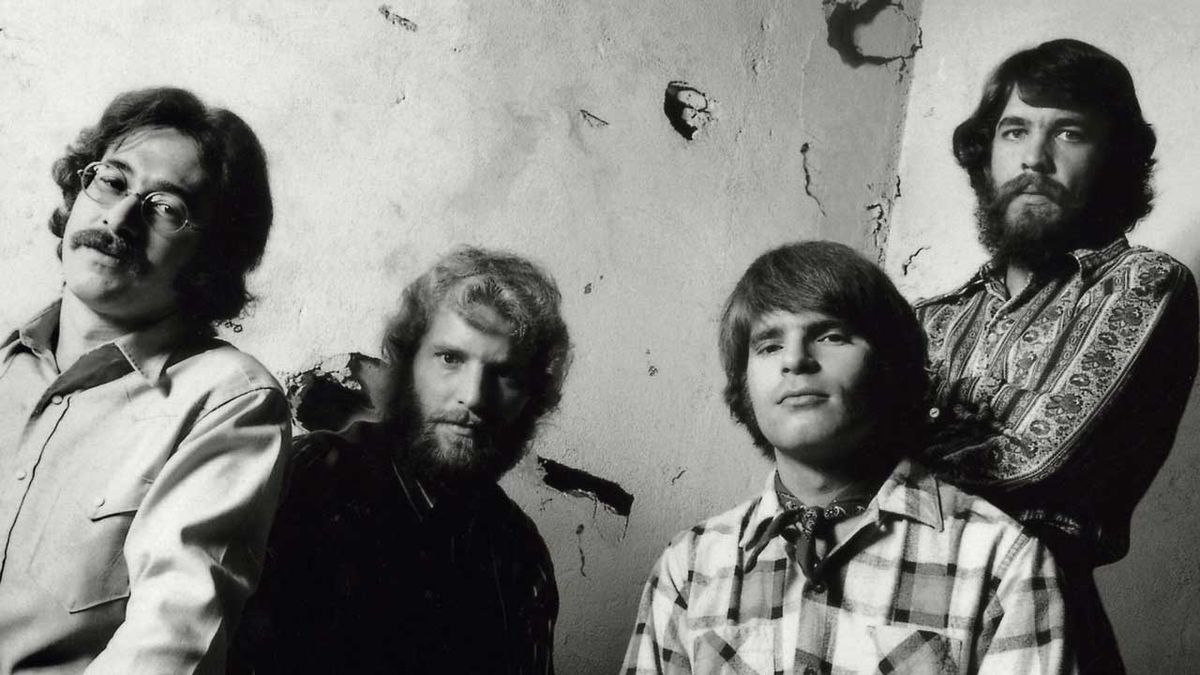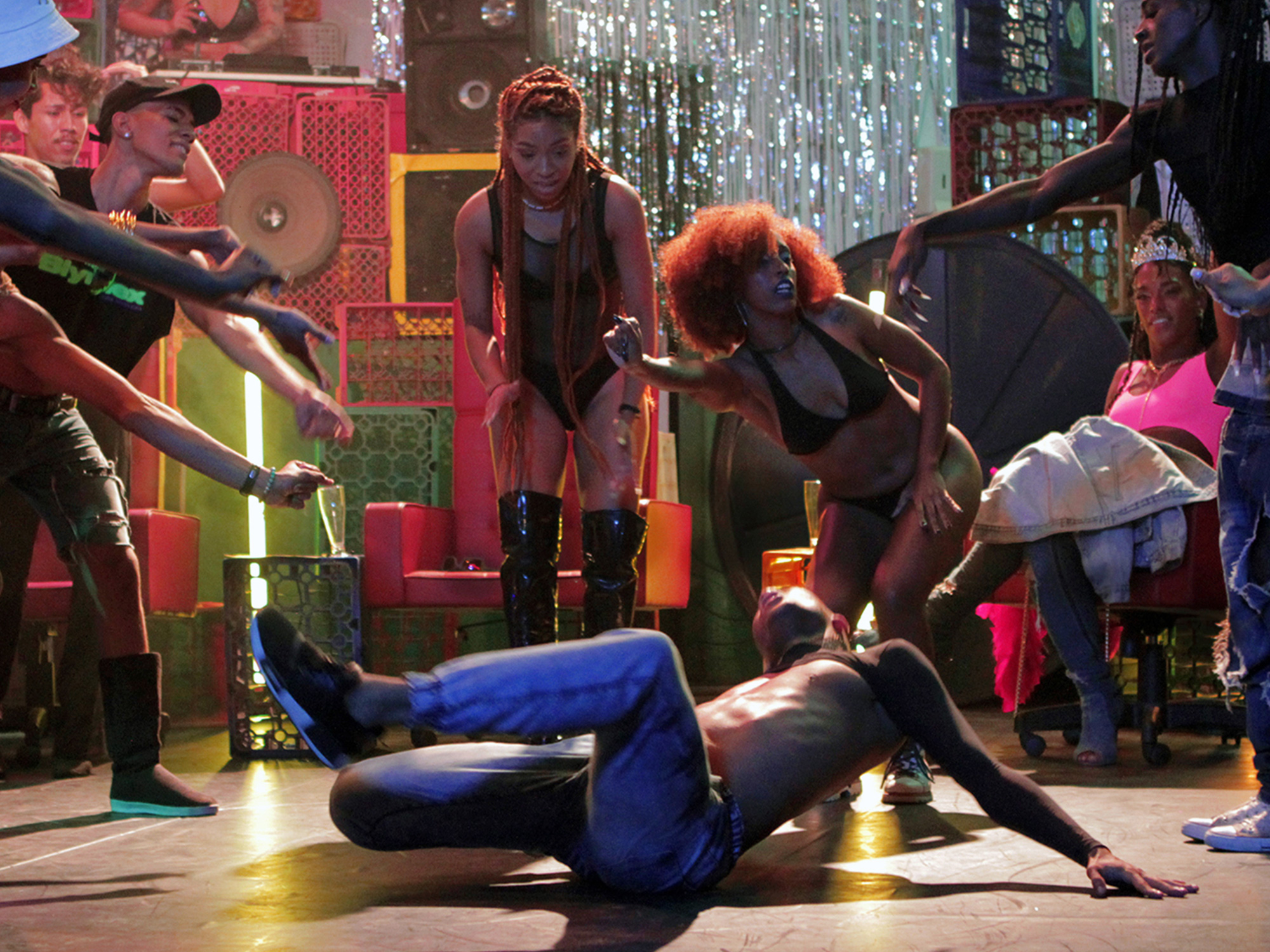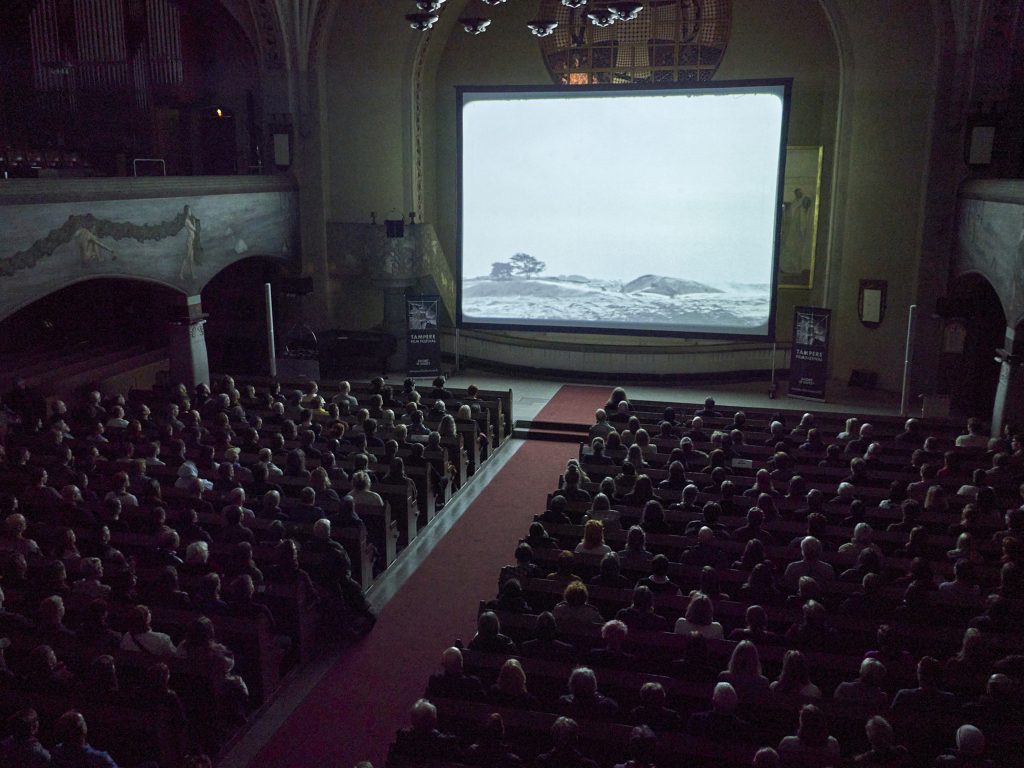“It feels like a birthday, bro,” C.S. Armstrong tells me over a video call, as he shows off his golden smile that lights up the room. While his actual birthday isn’t until December, he’s in a celebratory mood now that he has released his EP, The Makings of Me. “I ain’t release new music in like three years,” he adds. Since it’s been a while since Armstong released a proper project, he’s getting an early start on the season of giving. (He plans to release his album, Damascus, on Sept. 9. It will feature appearances from Eryn Allen Kane, Oddisee and Rapsody.)
Now, back to The Makings of Me. Running less than 15 minutes, the eight-track EP is a quick listen. But, it required a lifetime of experience to bring it to fruition — from singing in church to joining a gang as a teen to serving in the United States Army. The latter is what helped him change his life around. “The army saved my life for sure,” he notes.
Born Chauncy Sherod Armstrong, the Houston, Texas, native’s musical roots can be traced back to his church — Greater Jerusalem Baptist Church, to be exact. He recalls being an inquisitive preschooler. “I would go sit next to Sister Brunswick. She played that [Hammond] B3 organ. That shit brought tears to my ears every time,” says Armstrong. He eventually asked her to teach him how to play the instrument. “She said, ‘Mmhmm. Sit right next to me,’ he recalls.
Armstrong developed musical influences outside of the church, as well. He credits his uncle for introducing him to hip-hop. “He’s less church than my grandma, let’s just say that,” Armstrong chuckles. “From him, I got the balance of Pimp C, Too $hort, Ice Cube, Dr. Dre [and] Tupac. All the gangsta sh*t, I got from my uncle. And then the other half was The Clark Sisters (laughs).”
Tryna get it to the point where every time you see the words blues, you think of me. Workin on it
— C.S. ARMSTRONG (@csarmstrong) April 4, 2022
While gospel and hip-hop are necessary ingredients in Armstrong’s artistry, blues is the most essential. “Tryna get it to the point where every time you see the words blues, you think of me. Workin on it,” he tweeted in April. If that isn’t enough, he has ‘bluesman’ tatted in large letters across his shoulder blades.
On The Makings of Me, Armstrong blends the three genres to create a sound that is authentic to him. He invites listeners into his world as he reflects on the ebb and flow of life and how they inform who he is today. “I want people to know that what made you isn’t the negative things. Look at it as an opportunity to be better,” he says when asked what he hopes listeners will take away from the EP.
Armstrong started working on the music some time ago. However, he gives props to rapper Kendrick Lamar for inspiring him to release a project that embraces his imperfections.
“He got a song called ‘Mother I Sober’ on his new album, Mr. Morale & The Big Steppers,” says Armstrong. “I was like, ‘Damn, you’re allowed to be this honest? I thought you had to be a certain type of way. I ain’t think you could just be yourself and win.’ For him to stand on his imperfections and win, that’s beautiful.”
He adds, “That’s what this project is about. For the first time, I’m letting you see my great-grandmother’s house [on the cover]. She died in 2014. You see why I sound the way I sound [and] why I look the way I look. All those influences come from Shreveport, Louisiana. From there, we moved to Houston, Texas. That’s how I got the way I am.”
Armstrong produced every track on The Makings of Me. It’s his first time releasing a full self-produced project. “It took about a year and a half to get it all together,” he says of his experience teaching himself how to produce.
Since starting, he has created well over a thousand tracks. It may seem excessive, but it’s the result of him creating music daily. He learned to keep his creative muscles in shape from his mentor, legendary producer Dr. Dre. “I learned that from him. It’s a muscle. You gotta work that sh*t every day,” he says. “If I’m seeing him work at it until like 1 a.m., what’s my excuse?”
In Rated R&B’s interview with C.S. Armstrong, he shares the inspiration behind every song on The Makings of Me.
“DIFFERENT”
One of my favorite OutKast songs of all time is the “Return of the ‘G’.” That shit is so profound to me. And then one of my favorite UGK songs is “One Day.” I’m letting you know who I am. I had to let people know again where I come from. I don’t think nobody knew. It’s like, “Man, you got such a different ass voice.” I brought the hip-hop in there because of that. [He sings a lyric from Lashun Pace’s “There’s A Leak In This Old Building” in his bluesy voice.] I can do that all day. It makes me feel so good. It gives me chills now that I’m doing it. But I understand that most folks don’t understand that they don’t understand the spirit like we do. I chop it up so folks can understand it.
“I CAN’T”
I’ve heard in my career a lot of times, “Man, you can’t do no up-tempo song.” Little Simz dropped a video to a song called “Point and Kill.” I was like, “Damn, man. If I was to do a dance song, it’ll be some shit like that.” I wasn’t gonna put it on the project, but I took something off and put this on there last minute. I’m glad I did because it just gives the project balance. Shout out to Miles James. He added some drums that moves it and takes it to this African place.
“SWANGIN 4 YRS”
If I’m honest, I was gonna take off at first. I was like, “Man, this is too slow. I don’t know if people gonna get it.” And again, Miles James sent me that post-production, and I was like, “What?!” When you go to Houston, that shit to me is like a slow motion Spike Lee film. You see the cars just swangin’. It’s like they dancin’. “Swangin 4 Yrs” was just me as a kid being in awe of them rims and them trunks. I couldn’t believe that was real as a kid. My uncle used to take me to me to MacGregor Park on Sundays. That’s what that is, man, my perspective on it.
“MA EMILY”
[This is] one of the most personal songs on here. This song started the project through a conversation with my mom. She was telling me what her great-grandmother was like. I was like, “Oh man, we never talked about that. What was her name?” She was like, “Ma Emily. She was so beautiful. She had a very strong, intuitive spirit and she was connected.”
[On the song], I feel like I’m addressing some shit because the women are the backbone of my family and that shouldn’t be the case. I think Black women bear too much on their shoulders. As Black men, we gotta take some of that off. We gotta come together and figure it out, so they ain’t gotta shoulder all that trauma. They pass it down to the men and we don’t know where we got it from. That’s why I had to stand up and be like, “Nah, I’m not like that.” I want y’all to see me with my kids all the time. I love my woman. I want to fill my woman up with the love that I didn’t get, but that I know is around.
God introduced me to love from other people through mentors [and] spiritual guides. I know it is real love out there. I want to put that same love into my children. This is another conversation… especially in the South, as Black men and women, we were all raised by broken mothers and that’s sad. I’m proud of it because they are strong women, but they shouldn’t have to be that strong.
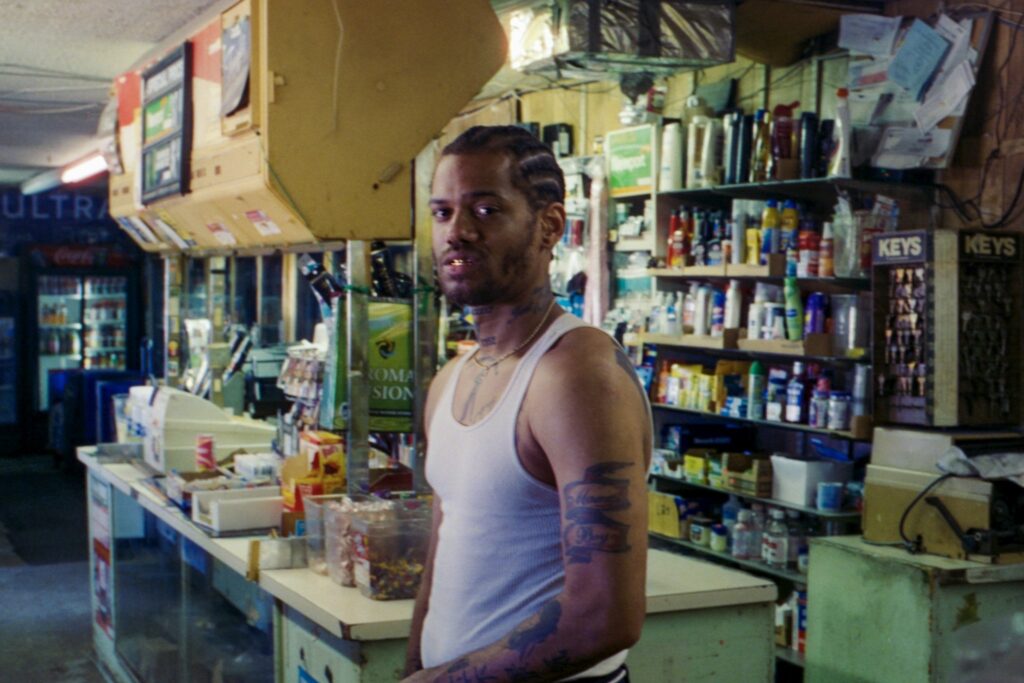
“HOW LONG WILL U BE HERE”
That’s a continuation of “Ma Emily.” It’s an ode to my great-grandma who passed in 2014. That was a heavy blow. I thought she was always gonna be here. I ain’t think we were gonna go to that house, I [film] a video and she not be in it. Now, even with my relationships, it’s like, “How long are you gonna be here? Is this temporary?” My heart can’t take temporary. I’ve been broken by it too much. Either you are here or not. [But]yeah, that’s me talking to my great-grandma Viola Armstrong [on the song]: “You could have left me at the right time. You ain’t have to disappear like that.” That’s directly to her. Rest in peace.
“INITIATION”
This is my favorite song. When I was in high school, I used to see boys coming beat up in school. I’m like, “What happened to you yesterday?” I never heard it talked about in music. It feels like this coveted thing. This is the first time I heard it like this. It’s a strange way to put it, but I was blessed to get jumped in by my uncle. If you know the culture, you know a lot of times it don’t happen like that. You hear him on this song, he’s like, “This my n*gga. I’m gonna beat this n*gga ass” (laughs). It’s very honest.
I remember this dude that came to homeroom with his knowledge folded up in school. He was lumped up. The next week, he came through with a black flag. I was like, “Man, what’s that?” I’m asking around and then I finally got the nerve to ask my uncle. I said, “Look, I wanna be down. Whatever I gotta do, let me know.” My uncle took me to [an apartment complex], and the whole hood came out and beat my ass. That’s the day I felt love in the hood and that’s a strange thing. I came up as a church boy so I was the n*gga they picked on. I ain’t think I was cool. For the first time, the hood thought I was cool. I put in some work [and] got my flag. I was accepted for the first time in the Black community. I would say that’s rather sad, but it is what it is.


